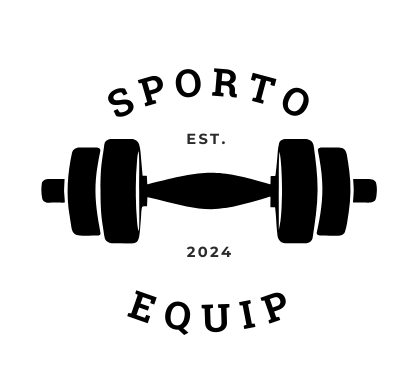The two main foundations of a healthy lifestyle plan are diet and exercise. But can balancing our food and exercise routines lead to better fitness outcomes? If so, how do our eating habits change before to, during, and following activities? Proper diet and exercise scheduling lays the groundwork for maximizing physical benefits.
WHY EAT PRIOR TO WORKOUTING?
A pre-event or pre-workout meal’s main objective is to refuel glucose, the body’s short-term energy storage type of carbohydrate. Given that the liver is drained of glycogen after supplying the nervous system with fuel while sleeping, this meets immediate energy demands and is essential for morning workouts. On the other side, the muscles need to be stocked with carbohydrates from good recovery nutrition the day before.
The body doesn’t require much, but it does require something to activate the metabolism, act as an immediate energy source, and support the intended duration and intensity of the exercise. But what exactly is that? An exercise can succeed or fail based on that decision. It is a good way to check out a variety of pre-workout snack foods and stay with the few that are most effective in the current situation.
WHICH FOODS TO EAT PRIOR TO WORKOUT
Carbohydrates should make up the majority of the nutrients in a pre-workout meal as they provide the body with rapid energy. A little amount of protein should be ingested as well because it requires longer to process and does not immediately meet a demand at the start of an activity. Although convenience meals such as energy bars or replacement drinks may be useful since you can control the calories and the proper ratio of carbs, protein, and fats, regular foods such as a bagel with peanut butter are optimal. Depending on their needs, exercisers could also add a piece of fruit, a drink of low-fat hot chocolate, or another favorite carbohydrate. Fluids before exercise are essential to avoid dehydration.
WHEN SHOULD YOU EAT BEFORE EXERCISING
The right timing is crucial for pre workout nutrition. If you eat too soon, your meal will be exhausted by the time you start working out; if you eat too late, your stomach will be uncomfortable while you work out. Although there are many aspects to take into account when choosing when to eat, the majority of individuals find that 2-4 hours before to activity is the best window. These considerations include body composition, age, gender, metabolic rate, gastrointestinal motility, and kind of training. Anything ingested within an hour of an activity or training should ideally be liquid or blended, like a sports drink or smoothie, to encourage quick stomach emptying. Keep in mind that because we are all unique, our bodies will behave differently. To find out what would be best tolerated, sportsmen must test with well before meals’ quantity, timing, and content.
EFFECTIVE DIET BEFORE WORKOUT
Not only should pre workout meals be simple to digest, but they should also be simple and handy to take. Based on the length and level of effort, the capacity to supplement throughout the activity, individual energy requirements, ambient factors, and the start time, a thorough pre workout diet is based should be assessed. For example, to maintain the appropriate intensity during the event, a person who is heavier and participating in a longer-distance race usually requires a larger lunch and additional nutrients. It might be difficult to judge how much is too much or too little, but self-experimentation is essential for success. The athlete should experiment with various pre-workout foods while undergoing diverse training
SHOULD YOU EAT OR DRINK WHILE WORKING OUT?
Sports drinks with 6-8 percent carbohydrates are quick and easy sources of liquids. And also, BCAA is the most popular drink while working out because it provides instant energy to perform intense workout Athletes should, however, adapt these techniques to their own sweat rates, tolerances, and levels of exercise. During prolonged activity, many sportsmen choose drinks or protein bars to supply carbs. These sports supplements are designed with a precise nutritional profile to quickly deliver carbs and electrolytes.
BASICS OF WORKOUT RECOVERY AND NUTRITION
To enhance health and stamina, you must plan the next bout of action as soon as one session of exercise concludes. That means emphasizing recovery, which is one of the most important and sometimes overlooked aspects of effective sports nutrition. An excellent nutrition recovery strategy provides the appropriate nutrients at the appropriate time. Recovery is the process through which the body adapts to the previous effort and prepares for the next fitness test. Carbohydrates to restore depleted fuel stores are among the nutritional components of recovery. Protein to aid in the repair of injured muscle and the development of new muscle tissue, as well as water and minerals to dehydrate.
A full, quick recovery provides extra energy and hydration for the next training or event, improving performance and lowering the risk of injury. After intense workout Within 30-minute timeframe, athletes should have a carbohydrate-rich snack to enhance muscle glycogen restoration. Athletes should ideally continue this carbohydrate load every two hours for up to six hours. Although these suggestions are a wonderful place to start, there are no unbreakable laws governing sports nutrition that meet everyone’s requirements.
Therefore, it is crucial to pay close attention to how you feel when exercising and how your food impacts your ability to perform. To build a nutrition and fitness regimen that is most effective, you might need to experiment with varied times and alternate routines. In terms of sports nutrition, timing is undoubtedly important, and it may be optimized.


